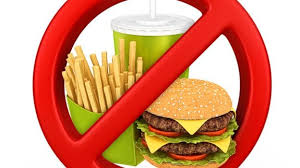Content of the Article
Food is one of the basic needs of life. Eating foods help the body develop, help you feel energetic throughout the day and develop resistance against diseases.
Importantly, eating healthy foods ensures a healthy life, while unhealthy foods (especially junk food) and overeatingleads to poor health and an irreversible state of health.
Whether you're at home or out, there are so many delicious food options and quick snacks available today. Having so many options makes it easier to overeat.
If you eat portion sizes unwittingly and carelessly, the eating process can easily get out of control, with various negative health consequences.
One of the ways to control this habit is to first know how overeating affects the body. Here the harmful effects of overeating...
What are the Harms of Overeating?
Causes weight gain and fat
The daily amount of calories a person should consume is determined by how many calories he burns and how many calories he eats. When more calories are consumed than are consumed, a calorie surplus is formed. The body stores this excess as fat.
OvereatingIt triggers the development of excess body fat and obesity due to the intake of more calories than needed.
Excessive consumption of protein among macronutrients does not increase body fat due to the way it is metabolized. Excess calories from carbohydrates and fats are more prone to body fat storage.
It disrupts the body's hunger routine
There are two main hormones that affect hunger regulation - the appetite stimulant ghrelin hormone and appetite suppressing leptin hormone.
When no food is eaten for a certain period of time, the levels of the hormone ghrelin begin to rise. After eating, the leptin hormone steps in and tells the body that it is full. But overeatingcan upset this balance.
Eating foods rich in fat, salt, or sugar releases the body's feel-good hormones such as dopamine, which activates the pleasure center in the brain.
Over time, the body associates this sense of pleasure with certain foods high in fat and calories. This process disrupts the hunger regulation and leads the hunger to eat for pleasure rather than to satisfy.
The disruption of these hormones triggers a continuous cycle of binge eating. To counteract this effect, it is necessary to eat food slowly and in small pieces.
Increases the risk of disease
Chronically overeatingcauses obesity. Obesity increases the risk of various diseases.
Obesityis one of the main risk factors for metabolic syndrome. Metabolic syndrome; It increases the risk of other health problems such as heart disease, diabetes, and stroke.
High levels of fat in the blood, high blood pressure, insulin resistance, and inflammation are all indicators of metabolic syndrome.
Insulin resistance all by itself overeating is a situation that causes. It develops when excess sugar in the blood reduces the ability of the hormone insulin to store in blood sugar cells. If left uncontrolled, insulin resistance can lead to type 2 diabetes.
The risk of these conditions is reduced by avoiding high-calorie, processed foods, eating plenty of fiber-rich vegetables and fruits, and reducing carbohydrate intake.
It impairs brain functions
Over time, overeatingcan impair brain function. Many studies have been repeatedly reported in older adults. binge eating and it attributes obesity to mental decline.
One study with older adults found that being overweight negatively affected memory compared to individuals of normal weight.
Given that the brain contains about 60% fat, eating healthy fats like avocados, nut butter, fatty fish, and olive oil helps prevent mental decline.
Makes you nauseous
Regularly overeatingcan cause stomach upset such as nausea and indigestion.
An adult's stomach is about the size of a clenched fist. It is approximately 75 ml when the stomach is empty, but it can expand to 950 ml.
These numbers vary depending on body size and how much you eat regularly. When overeatingThe stomach reaches its upper capacity, as a result you may experience nausea or indigestion. In severe cases, nausea triggers vomiting, which is the body's way of relieving acute stomach pressure.
Although many over-the-counter medications can cure these problems, it is a simpler and easier method to prevent the condition before it occurs. In other words, you should pay attention to the portion sizes while eating and eat slowly.
Causes excessive gas and bloating
OvereatingIt strains the digestive system, triggers gas and bloating. Also, eating too fast can increase gas and bloating due to large amounts of food entering the stomach quickly.
You can avoid gas and bloating by eating slowly, reducing portion sizes, and reducing foods and drinks that cause gas.
Causes you to feel sleepy and sluggish
After overeating, most people feel weak or tired. This is caused by a condition called 'reactive hypoglycemia', where blood sugars drop shortly after overeating.
Low blood sugar is usually manifested by symptoms such as drowsiness, weakness, rapid heartbeat and headache. Although not fully understood, the cause is thought to be related to excessive insulin production.
Although it is common in people with diabetes who administer too much insulin, some individuals may develop reactive hypoglycemia as a result of overeating.
Overeating is very harmful
OvereatingIn fact, it reduces the body's ability to absorb nutrients. Chronic overeating causes the digestive system to malfunction and the whole body is affected.
For women, this causes the reproductive system to malfunction and the menstrual cycles to be destroyed. For men do not eat too much decreased libido and chronic fatigue It manifests itself in the form.
Do not eat too much It also causes the digestive system to malfunction and an increase in toxic accumulation in the body. Convenience foods, alcohol, salt, sweet, spicy and fatty foods reduce the digestive ability of a person's body and disrupt the functioning of all other major organs.
This results in toxic buildup in the person's body, which triggers weight gain and diseases such as high blood pressure, narrowing of blood vessels, diabetes, and cancer.
What Can Be Done to Prevent Overeating?
- Avoid shock diets. Feeling of withdrawal, overeating triggers. This is the reason why you gain more weight than you lost after the shock diet.
- Do not skip meals. Skipping one meal, another do not eat too muchmay cause to eat.
Be aware of what you are eating. In this form of eating, which is called mindful eating, it is stated that in order to be aware of what you are eating, it should not be eaten with distractions such as television, computer or book.
- Eat your meals in small plates.
- Eat foods with low glycemic index to stabilize blood sugar levels.
- Take care to drink enough water.
Stress is the biggest enemy of health. Excessive eatingmay also be the cause of. To reduce stress, you can do activities such as yoga, and you can get yourself a hobby.
- Eat foods high in fiber.
- Clean up junk food and unnecessary food from the kitchen.
- Drink water instead of carbonated drinks.
- Go to the gym.
- Don't skip breakfast and have a protein-rich breakfast.
- Get enough sleep.
- Keep a food diary and write down what you eat and drink here.
- Talk to someone who will support you all the time.
Increase your protein intake.
- If you still haven't solved your overeating problem, get help from a dietician.
As a result;
Overeating It is not a difficult situation in today's possibilities. Do not eat too muchhas many harmful effects. It can lead to bloating, gas, nausea, excess body fat and an increased risk of disease.
Reducing portion sizes, eating less processed foods and eating natural foods are habits that need to be developed to prevent overeating.













